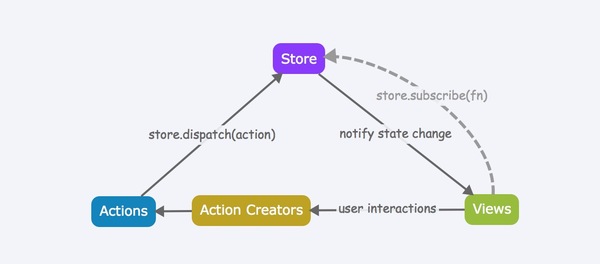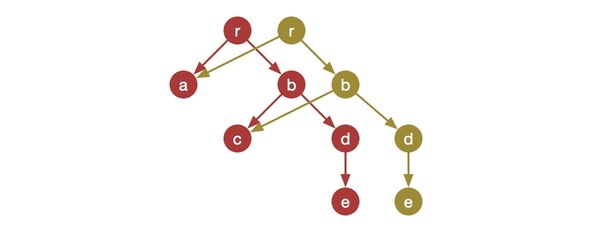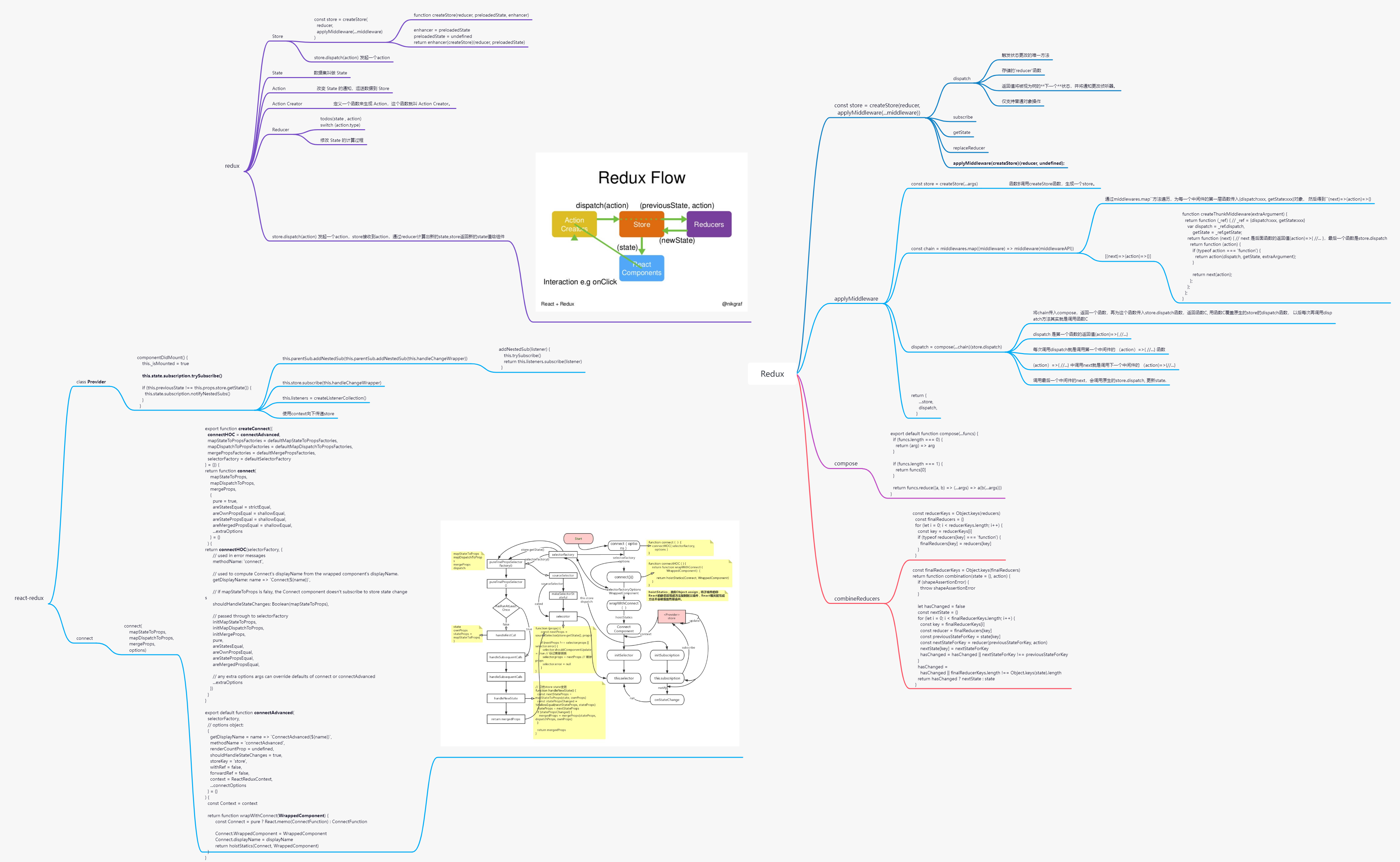redux
const middleware = [thunkMiddleware];
if (process.env.NODE_ENV === 'development') {
const { logger } = require('redux-logger');
middleware.push(logger);
}
const store = createStore(reducers, applyMiddleware(...middleware));
redux 数据流
组件通过 store.dispatch(action) 发起一个 action
store 接收到 action 通过 reducer 计算出新的 state
store 返回新的 state 值给组件
数据流
作为 Flux 的一种实现形式,Redux 自然保持着数据流的单向性,用一张图来形象说明的话,可以是这样:

Store
Store — 数据存储中心,同时连接着 Actions 和 Views(React Components)。
连接的意思大概就是:
- Store 需要负责接收 Views 传来的 Action
- 然后,根据 Action.type 和 Action.payload 对 Store 里的数据进行修改
- 最后,Store 还需要通知 Views,数据有改变,Views 便去获取最新的 Store 数据,通过 setState 进行重新渲染组件(re1.render)。
Store 总结
- Store 的数据修改,本质上是通过 Reducer 来完成的。
- Store 只提供 get 方法(即 getState),不提供 set 方法,所以数据的修改一定是通过 dispatch(action)来完成,即:action -> reducers -> store
- Store 除了存储数据之外,还有着消息发布/订阅(pub/sub)的功能,也正是因为这个功能,它才能够同时连接着 Actions 和 Views。
- dispatch 方法 对应着 pub
- subscribe 方法 对应着 sub
Reducer
Reducer,这个名字来源于数组的一个函数 — reduce,它们俩比较相似的地方在于:接收一个旧的 prevState,返回一个新的 nextState。
在上文讲解 Store 的时候,得知:Reducer 是一个纯函数,用来修改 Store 数据的。
数据不可变
React 在利用组件(Component)构建 Web 应用时,其实无形中创建了两棵树:虚拟 dom 树和组件树
为了避免这样的性能浪费,往往我们都会利用组件的生命周期函数 shouldComponentUpdate 进行判断是否有必要进行对该组件进行更新
对于对象引用(object,array),就糟糕了
最后对于对象引用的比较,就引出了不可变数据(immutable data)这个概念,大体的意思就是:一个数据被创建了,就不可以被改变(mutation)。
Reducer 函数在修改数据的时候,正是这样做的,最后返回的都是一个新的引用,而不是直接修改引用的数据
function eReducer(state = [2, 3], action) {
switch (action.type) {
case 'ADD':
return [...state, 4]; // 并没有直接地通过 state.push(4),修改引用的数据
default:
return state;
}
}
最后,因为 combineReducers 的存在,之前的那个 object tree 的整体数据结构就会发生变化,就像下面这样:

现在,你就可以在 shouldComponentUpdate 函数中,肆无忌惮地比较对象引用了,因为数据如果变化了,比较的就会是两个不同的对象!
总结一点:Redux 通过一个个 reducer 实现了不可变数据(immutability)。
Middleware
在 Redux 中,Middlerwares 要处理的对象则是:Action。
中间件提供的是位于 action 被发起之后,到达 reducer 之前的扩展点。

react-redux:将 store 通过 props 传入 React 最外层组件

reselect
import {createSelector} from "reselect";
export const getProductList = (state: ApplicationState): Optional<ProductListState> => state.productList;
export const getSelectedId = (state: ApplicationState): Optional<string> => state.selectedId;
export const getSelectProductList = createSelector(
getProductList,
getSelectedId
(productList, selectedId): Array<string> => {
return (
productList.find(item => item.id === selectedId)
);
},
);